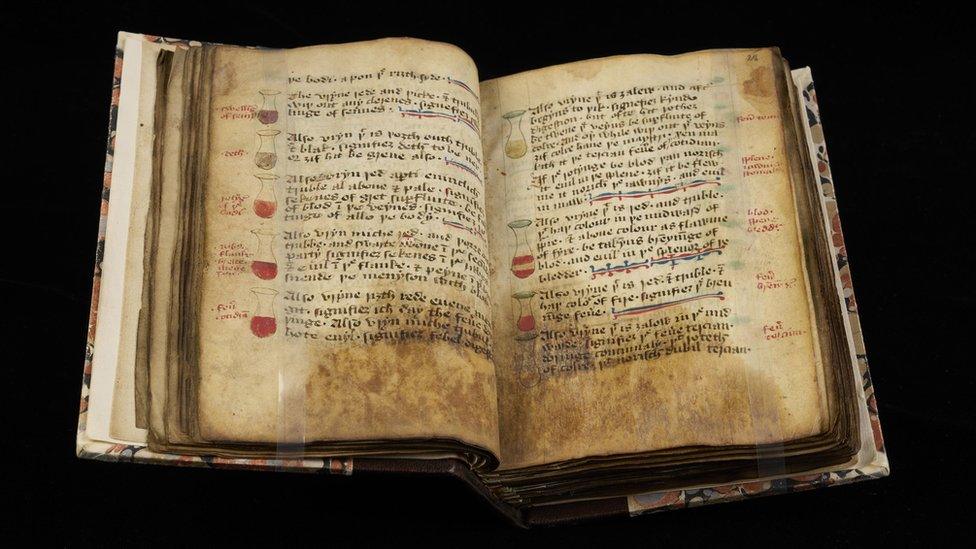Samuel Pepys: Cambridge college digitises medieval manuscripts
- Published
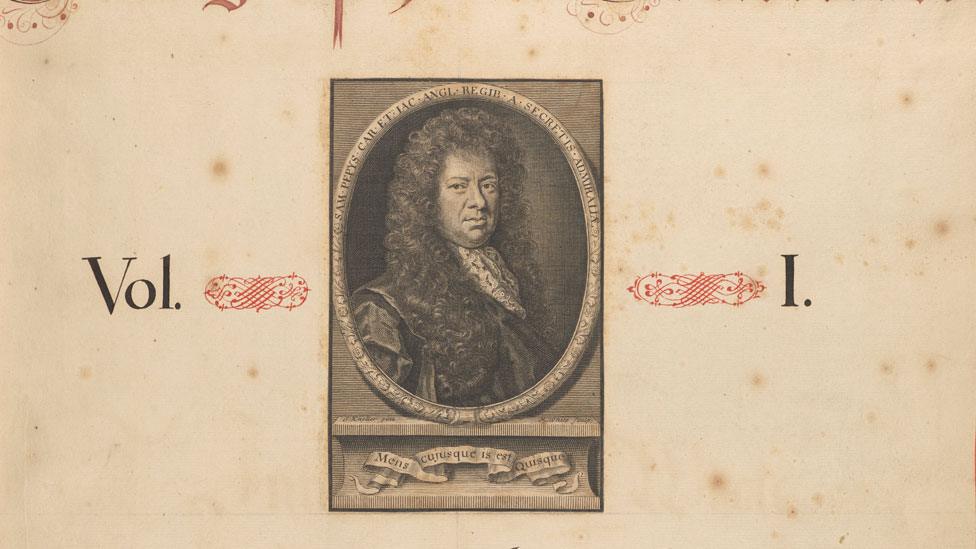
Samuel Pepys had his portrait put on every book in his collection
A collection of "visually appealing" medieval manuscript fragments collected and arranged in albums by Samuel Pepys has been digitised.
Pepys is best known for his 1660s diaries, external, but he was also a bibliophile who bequeathed his large library to Magdalene College, Cambridge.
The manuscripts can be seen at the Fragmentarium Digital Laboratory, external.
College librarian Catherine Sutherland said: "It's great to be involved with an international project."
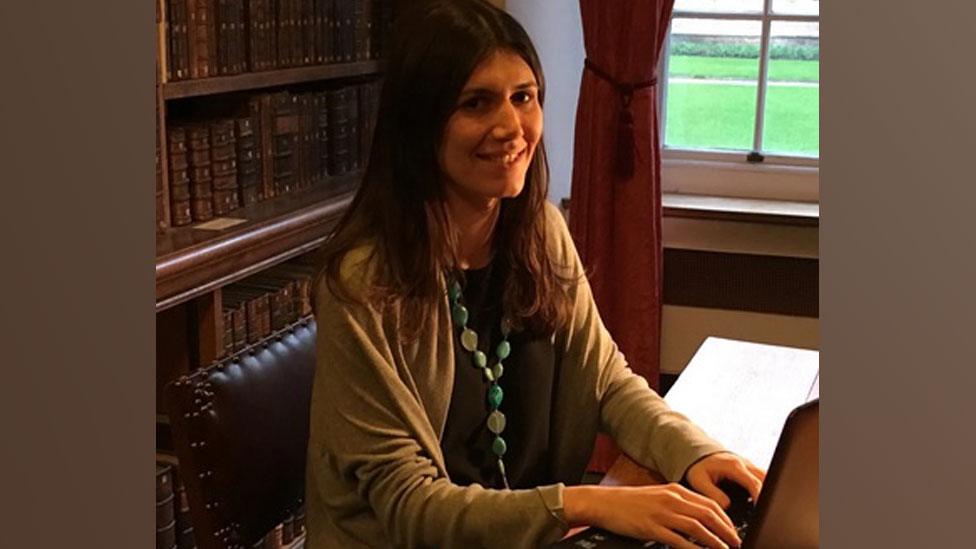
Catherine Sutherland has taken a leading role in the digitisation project
The project has enabled Pepys Library staff to identify some of the printed book fragments by comparing them with copies of books already online.
Mrs Sutherland, special collections librarian, said: "It's unusual to see manuscript fragments deliberately arranged and pasted into an album by their original owner - they are often stored loose in boxes - so Samuel Pepys's collection offers something a bit different in this area of research."
"He had a lasting fascination with handwriting and printing" and as a clerk [a 17th Century civil servant], "writing was crucial to his everyday life", according to Pepys Librarian Jane Hughes.
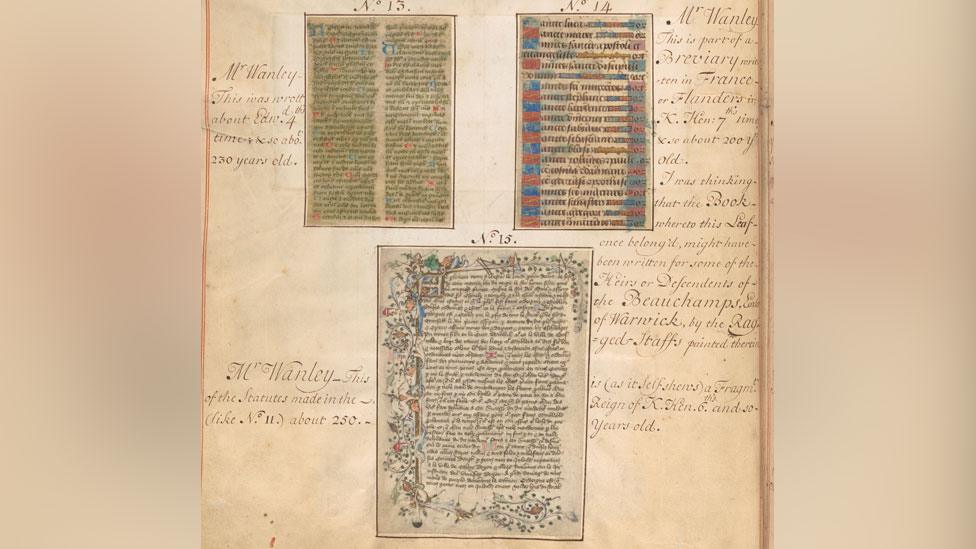
Pepys compiled the albums and his associate, the librarian Humfrey Wanley, added the handwritten commentary
Pepys' atmospheric diaries shone a spotlight on Restoration London, covering the ups and downs of his marriage, as well as historic events such as Charles II's coronation and the Great Fire of London.
But they only cover a short period of his life, during which he helped establish the Royal Navy, became an MP, was locked up in the Tower of London and elected the President of the Royal Society.
When he died in 1703, he left his collection of 3,000 books to the college where he had been a scholar in the 1650s.
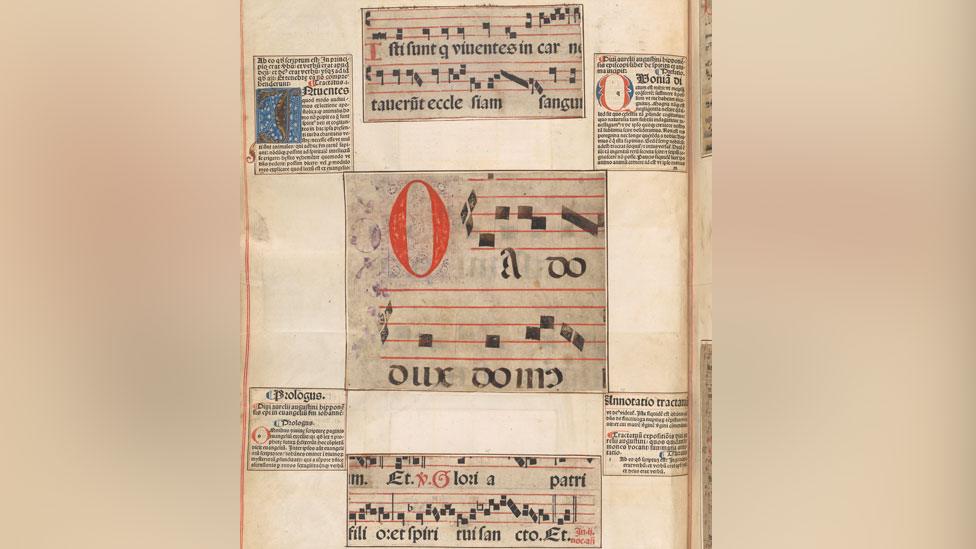
The pages look much like a scrapbook, with the fragments arranged in chronological order to demonstrate the development of handwriting
It is housed in the glazed bookcases he had made for it - and on the back row of one are the diary volumes.
Dr Hughes said: "Pepys saw books as a sign of gentility... but more importantly, he felt books were a way to learn about the world.
"He scarcely travelled, yet collected books and prints which showed him architecture, cultural activities such as festivals and religious practice from all over the world."
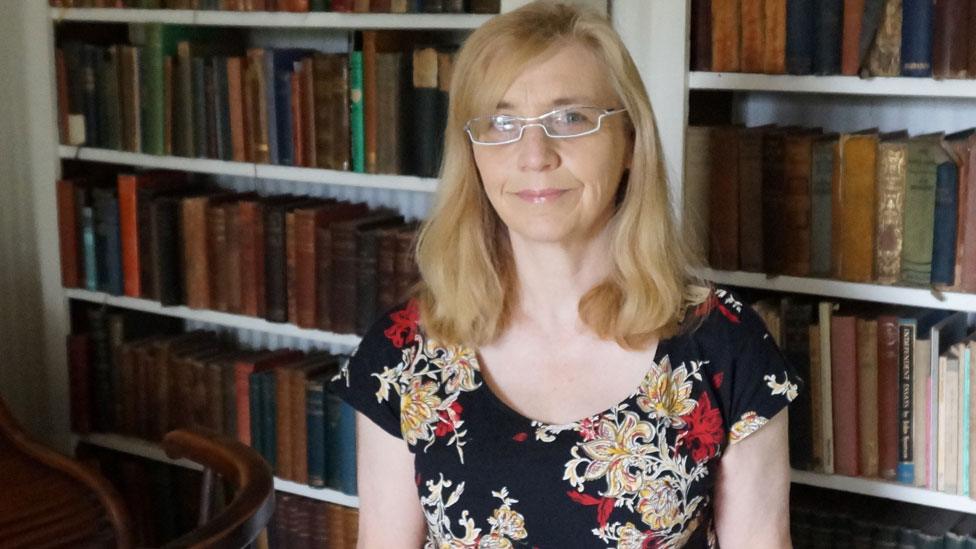
Although Pepys is best known for his diary today, in his lifetime he was famous as a collector, said Jane Hughes

Follow East of England news on Facebook, external, Instagram, external and Twitter, external. Got a story? Email eastofenglandnews@bbc.co.uk, external or WhatsApp us on 0800 169 1830
Related topics
- Published20 June 2023
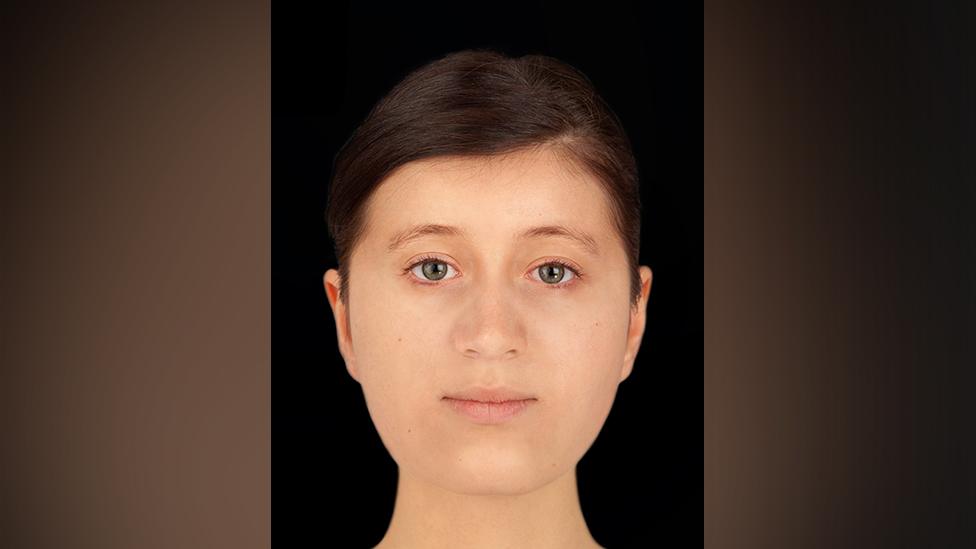
- Published31 May 2023
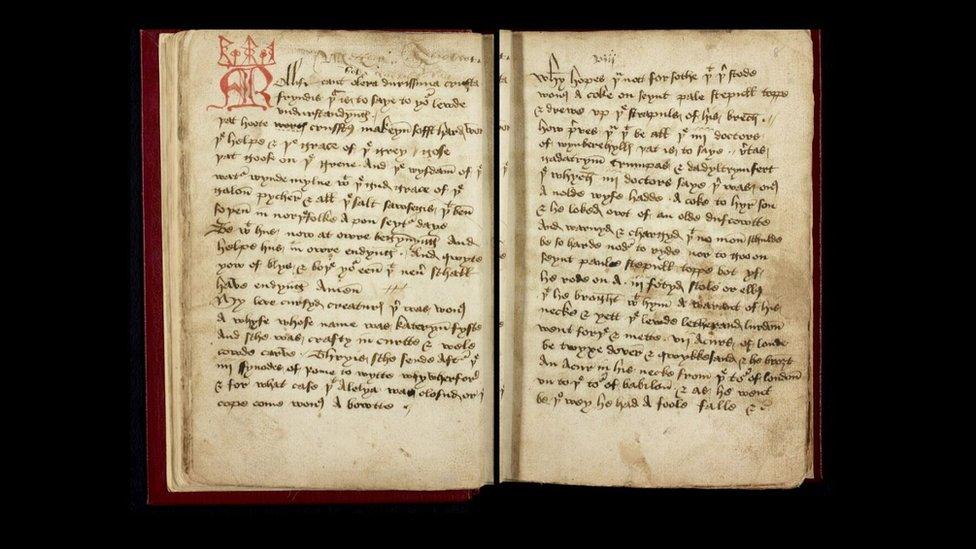
- Published16 March 2023
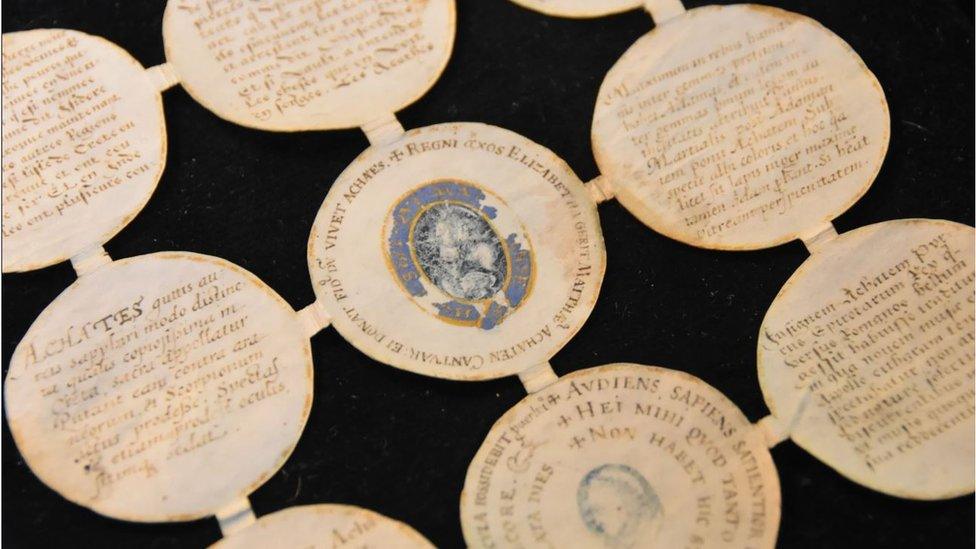
- Published18 March 2023
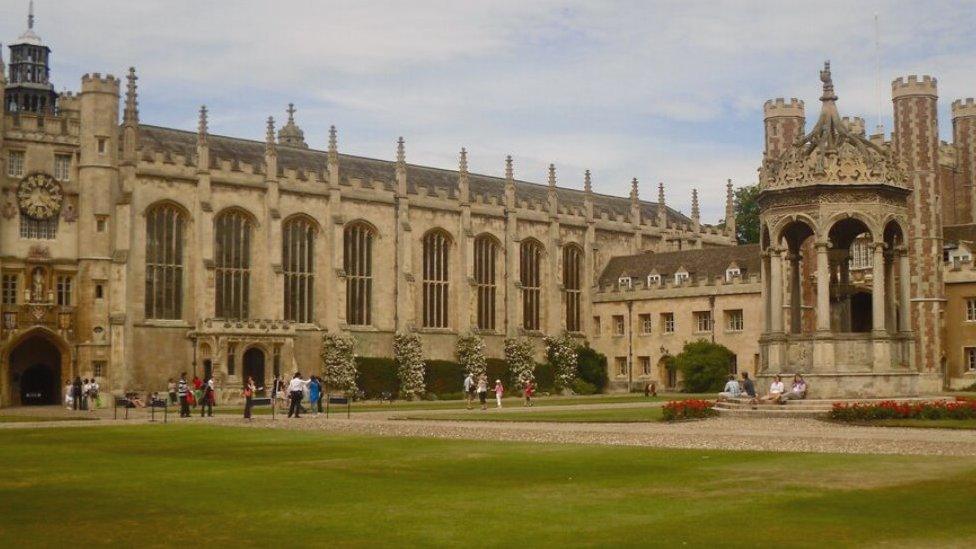
- Published18 November 2022
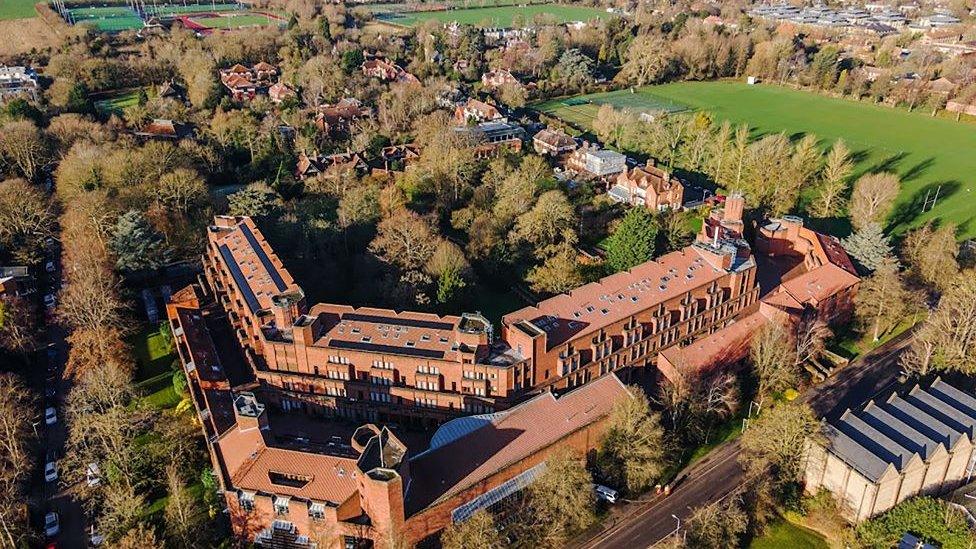
- Published4 October 2022
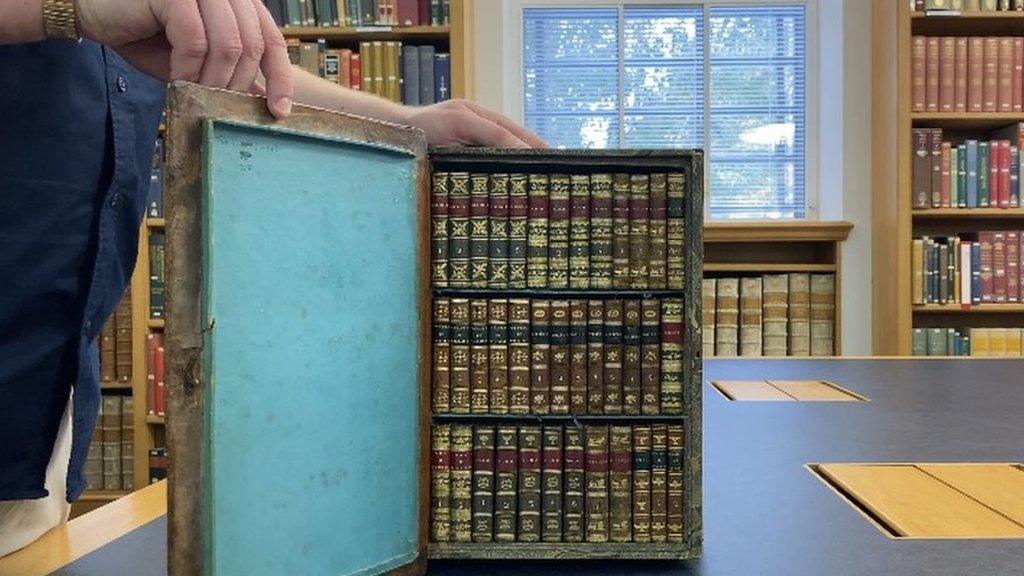
- Published17 August 2022
